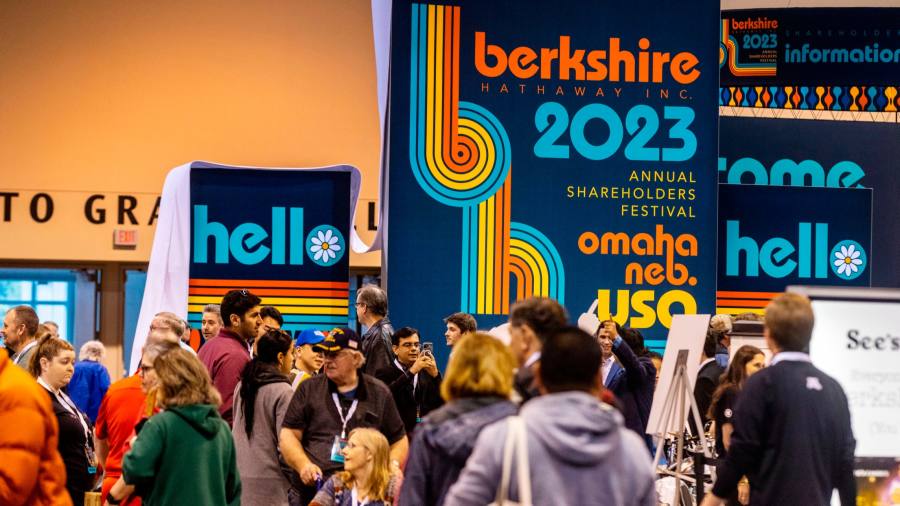
Warren Buffett’s Berkshire Hathaway sold billions of dollars’ worth of stock and invested little money in the US stock market in the first three months of the year, as the famous investor saw little appeal in the volatile market.
Berkshire revealed on Saturday that it sold $13.3 billion worth of stock in the first quarter and bought stock at a fraction of that number. Instead, it invested $4.4 billion in buying back its shares, as well as $2.9 billion in shares of other publicly traded companies.
The figures underscore the struggle Berkshire faces putting its big cash to work at a time when Buffett and his right-hand man Charlie Munger regard valuations as unattractive. The company’s cash pile has risen by $2 billion since the start of this year to $130.6 billion, its highest level since the end of 2021.
Munger last month told the Financial Times that investors should lower their expectations for stock market returns as the Federal Reserve raises interest rates and the economy slows.
Berkshire reported a profit of $35.5 billion in the first quarter, or $24,377 per Class A share, largely driven by a stock rally that lifted the value of its $328 billion portfolio of stocks. Profits were up from $5.6 billion in the previous year.
Operating profit — Buffett’s preferred measure of performance for Berkshire’s diversified group of companies — rose 12.6 percent from a year earlier to $8.1 billion. For the first time, the number includes the results of Pilot Flying J’s truck stop business, of which Berkshire took majority control in January.
The results are often scrutinized given the cross-section of the country with dozens of Berkshire companies doing business, including energy, logistics, housing and manufacturing.
One of Berkshire’s crown jewels, auto insurance company Geico, has turned to an underwriting profit after six consecutive losing quarters. The company said cutting advertising and raising interest rates helped the unit achieve an underwriting profit of $703 million.
The impact of rising interest rates and slowing economic growth has been evident across all companies, which include ice cream purveyors Dairy Queen, aircraft parts maker Precision Castparts, and railroad BNSF.
Berkshire warned that lower home sales continued to affect Clayton Homes, one of the largest makers of prefabricated homes in the US, and that sales across other housing companies had softened at the start of the year. Traffic on the BNSF rail line also fell at the start of the year, which the company blamed on a drop in imports from the West Coast and the loss of a customer.
However, higher interest rates have also been a boon for Berkshire. The company invests the vast majority of its $130.6 billion in cash in short-term Treasury bills and bank deposits.
Income from those short-term bills and cash deposits jumped to $1.1 billion, compared to $164 million a year earlier.
The numbers were released just hours before Buffett and three other Berkshire executives took to the stage in downtown Omaha, where tens of thousands of shareholders gathered for the company’s annual meeting.
Shareholders will hear the 92-year-old billionaire and his deputies Munger, Gregory Appel and Ajit Jain discuss the economy, the Fed’s efforts to lower inflation and Berkshire itself.
The four men are likely to be pressed on why the sprawling group did not make a major investment in the US banking sector, as it did in the midst of the financial crisis.
At the time, Berkshire’s capital helped back both Goldman Sachs and Bank of America. The latter is now a primary property in the company’s stock portfolio.
Berkshire stock is up 4.9 percent since the start of the year.




More Stories
JPMorgan expects the Fed to cut its benchmark interest rate by 100 basis points this year
Shares of AI chip giant Nvidia fall despite record $30 billion in sales
Nasdaq falls as investors await Nvidia earnings